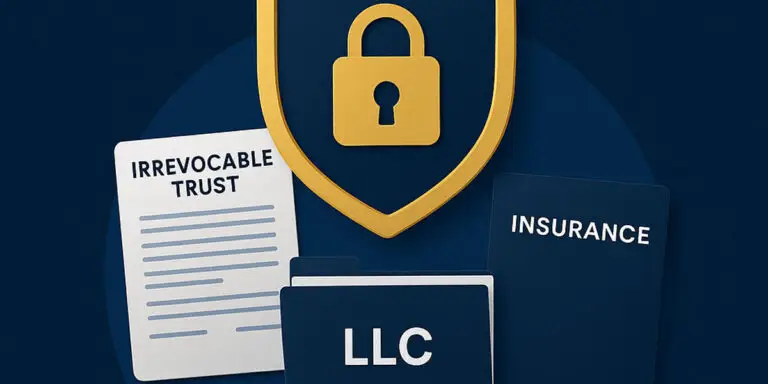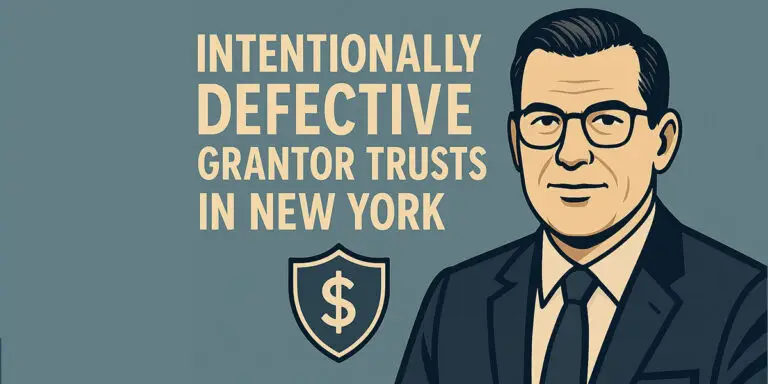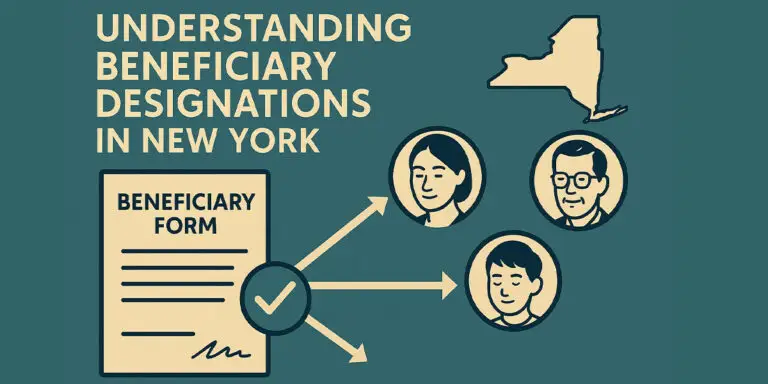
Estate Planning to Protect Assets From Lawsuits in New York
Estate Planning to Protect Assets From Lawsuits in New York: A Comprehensive Guide In today’s highly litigious environment, protecting your hard-earned assets from potential lawsuits


Home » Estate Planning » Page 3

Estate Planning to Protect Assets From Lawsuits in New York: A Comprehensive Guide In today’s highly litigious environment, protecting your hard-earned assets from potential lawsuits

The Crucial Role of the Executor During Probate in New York: A Comprehensive Guide When a loved one passes away in New York, the responsibility

Estate Planning for New York Residents with Significant Out-of-State Real Estate Holdings: A Comprehensive Guide Many New York residents have expanded their holdings beyond the

Estate Planning for Divorced Individuals with Children in New York: Balancing Obligations and Securing Their Future Navigating the complexities of estate planning can be challenging

Estate Planning White Plains, New York: Protecting Your Family and Securing Your Future Planning for the future can feel overwhelming, especially when it involves complex

Using Crummey Trusts in New York for Annual Gift Tax Exclusion: A Powerful Estate Planning Strategy Estate planning goes beyond simply distributing assets after death—it’s

Structuring Life Insurance for Maximum Estate Planning Benefits in New York Life insurance is often viewed as a financial safety net for your loved ones.

The Benefits and Drawbacks of Using a Corporate Trustee in New York When establishing a trust in New York, one of the most important decisions

Seeking an Estate Planning Attorney Serving New York & Florida: Protecting Your Assets Across State Lines For individuals who split their time between New York

Estate Planning for High-Net-Worth Individuals in New York: Minimizing Estate Taxes and Maximizing Wealth Transfer for a Lasting Legacy For high-net-worth individuals in New York,

How to Start a Real Estate Business in New York: A Comprehensive Guide to Legal, Financial, and Operational Considerations Starting a real estate business in

Understanding Child Support Calculations in New York: Navigating the Guidelines and Ensuring Your Child’s Well-being Determining child support obligations can be a complex and often

Business Succession Planning in New York: Ensuring a Smooth Transition and Protecting Your Legacy For business owners in New York, their company represents more than

Understanding Domestic Violence and Orders of Protection in New York: Protecting Yourself and Your Family Domestic violence is a serious issue that affects individuals and

Is There a Time Limit to Settle an Estate in NY? Understanding the Estate Administration Timeline When a loved one passes away, settling their estate

Child Custody Arrangements in New York: Understanding Types, Laws, and Considerations for Your Family Determining child custody arrangements is one of the most challenging and

Offshore Trusts and Asset Protection in New York: Proceed with Caution and Ensure Legal Compliance For New York residents seeking robust asset protection strategies, offshore

The Impact of Portability on Estate Tax Planning in New York: Maximizing the Deceased Spousal Unused Exclusion (DSUE) and Protecting Your Family’s Wealth Estate tax

Grantor Retained Annuity Trusts (GRATs) in New York: A Tax-Efficient Strategy for Wealth Transfer and Estate Planning Minimizing estate taxes is a constant priority for

Understanding Beneficiary Designations in New York: Avoiding Common Mistakes That Can Derail Your Estate Plan While a will or trust is a cornerstone of any

Estate Planning for Individuals with Substance Abuse Issues in New York: Protecting Beneficiaries and Ensuring Responsible Asset Management Estate planning becomes particularly sensitive and complex

Using Captive Insurance Companies in New York for Estate Planning: A Strategic Approach to Risk Management, Control, and Wealth Transfer For business owners in New

Charitable Remainder Trusts (CRTs) in New York: Blending Philanthropy and Estate Planning for a Lasting Impact Many individuals in New York are passionate about supporting

Estate Planning in New Jersey: A Comprehensive Guide for Protecting Your Assets and Securing Your Future While Morgan Legal Group primarily serves clients in New

Estate Planning Considerations for Retirement Accounts in New York: Roth vs. Traditional IRAs and Maximizing Benefits for Your Heirs Retirement accounts, such as Roth IRAs

Common Mistakes in New York Real Estate Closings and How to Avoid Them: Protecting Your Investment and Ensuring a Smooth Transaction The real estate closing

The Real Estate Closing Process in New York: What to Expect When Buying or Selling Property The real estate closing process in New York can

Estate Planning for Art Collectors in New York: Protecting Your Valuable Assets and Artistic Legacy For art collectors in New York, their collection represents a

Business Succession Planning in New York: Ensuring a Smooth Transition and Protecting Your Legacy For business owners in New York, their company represents more than

Estate Planning for Real Estate Developers in New York: Managing Complex Assets, Minimizing Risk, and Ensuring Business Succession Real estate developers in New York navigate
Ⓒ 2025 - All Rights Are Reserved | Privacy Policy | Estate Planning Attorney NYC | Sitemap